The imitation meat industry is no longer an ‘alternative’ company. Since its rise, processed substitutes have been the go-to choice for people who eat meat and ecologically conscientious customers. Many local food firms are releasing products that look, feel, and taste like meat. According to IBEF, India’s meat replacement market is anticipated to reach approximately $47 million by 2026.
Mock meat, also referred to as meat analog, fake meat, or vegetarian meat, is a meat substitute that is not sourced from animals. It appears, cooks, and feels like meat, but it’s safer, more beneficial to the environment, and doesn’t entail the slaughter of any animals. Mock meat firms are developing in India today, equipped with various textured flesh. You can use imitation meat in almost any dish, and it tastes the same.
Types of Mock Meat and how are they made
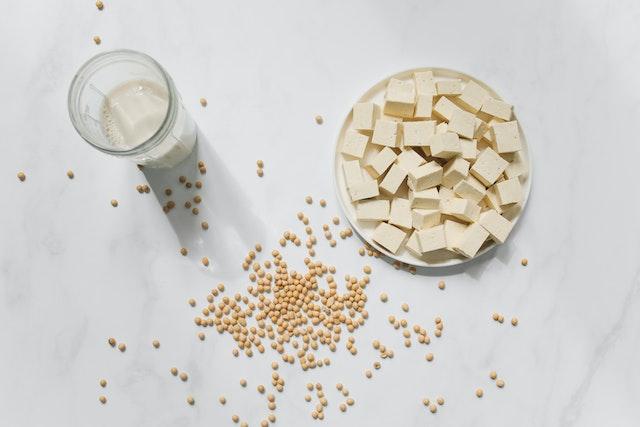
Tofu:
A centuries-old Asian delicacy, tofu is among the most prevalent and successful meat replacements. Tofu is frequently utilized in place of chicken, fish, beef, and pork. Tofu is a flexible food that can absorb various tastes, making it ideal for use with seasonings and sauces.
Textured Vegetable Protein (TVP):
It is frequently referred to as textured soy protein and is a relatively easy component to prepare. It’s usually made with soy flour. While tasteless, this vegan meat alternative, like tofu, will acquire the flavors of the fluids it’s soaked or prepared in, which are high in fiber, protein, and fat. It’s an excellent substitute for ground beef in recipes like cutlets, lasagnas, and burgers.
Tempeh:
It is soy-derived fake meat prepared from whole, somewhat fermented soybeans, as opposed to tofu, produced from soy milk. The processing of the soybeans used to manufacture tempeh disintegrates the phytic acid in the beans, which is a benefit of this specific imitation meat.
Seitan:
It is well-known for its meaty texture. This fake meat is made from wheat gluten. It is created by mixing water and wheat flour to make sticky threads of gluten protein. Seitan can be prepared to mimic chicken, beef, or hog, depending on how it’s seasoned.
Jackfruit:
Native to India, jackfruit has fast acquired appeal as a plant-based substitute for meat in vegetarian communities. This tropical fruit has a medium texture and flavor, making it an excellent meat substitute. It has a texture comparable to chicken and pig.
Pea Protein:
The growing curiosity about vegetarian and plant-based diets has likely driven the advanced availability of peas and other proteins. Pea protein is extracted from peas, and food producers are very keen on utilizing this protein for various foods like energy bars, veggie burgers, and even cereals. With protein garnering so much engagement, pea protein delivers a nutritious alternative. Conventional methods to increase protein included more extensive meat amounts. Yet, the proof is decisive that a surplus of red and processed meats raises the chances of developing cancer and other diseases. Pea protein also attracts lactose-intolerant individuals.
Benefits of Alternative protein
1. Alternative or non-meat proteins have nutrients that flesh proteins do not. Furthermore, they lower the incidence of heart problems, hypertension, diverticular disease, and other cancers.
2. Agriculture is considered a major contributor to greenhouse gas releases, and following a diet rich in alternative proteins is one way to decrease those emission levels significantly.
3. Numerous animal protection organizations have supported artificial meat as a dietary source. This includes avoiding cattle, particularly extensive animal agriculture and processing. Utilizing alternative proteins improves food and nutrition security. Vegetarian and vegan communities in high-income countries have grown considerably in the recent decade, especially among the youth.
Mock Meat Brands
1. Veggie Champ by Ahimsa Food
Yasmin Ahmad Jadwani’s affection for animals inspired the creation of Ahimsa. You can consume guilt-free salami, hot dogs, fish fillets, mutton, chicken drumsticks, and prawns. Veggie Champ impersonates these foods using soya beans, vegetable fibers, textural soya, seaweed, milk, sauces, and other ingredients. In 2008, it was among the initial few brands to join the mock meat market.

Image Source: Veggie Champ
2.Urban Platter
Enjoy pork chops and chicken tikka sans meat. Chirag Kenia and Dhaval Kenia started the online meal delivery service Urban Platter in 2015. It has debuted a line of ready-to-eat fake meat that includes jackfruit and soya bean flavored with various sauces. It appears very similar to the real thing. Reheat the meat in a pan or in the oven with enough water to eat.
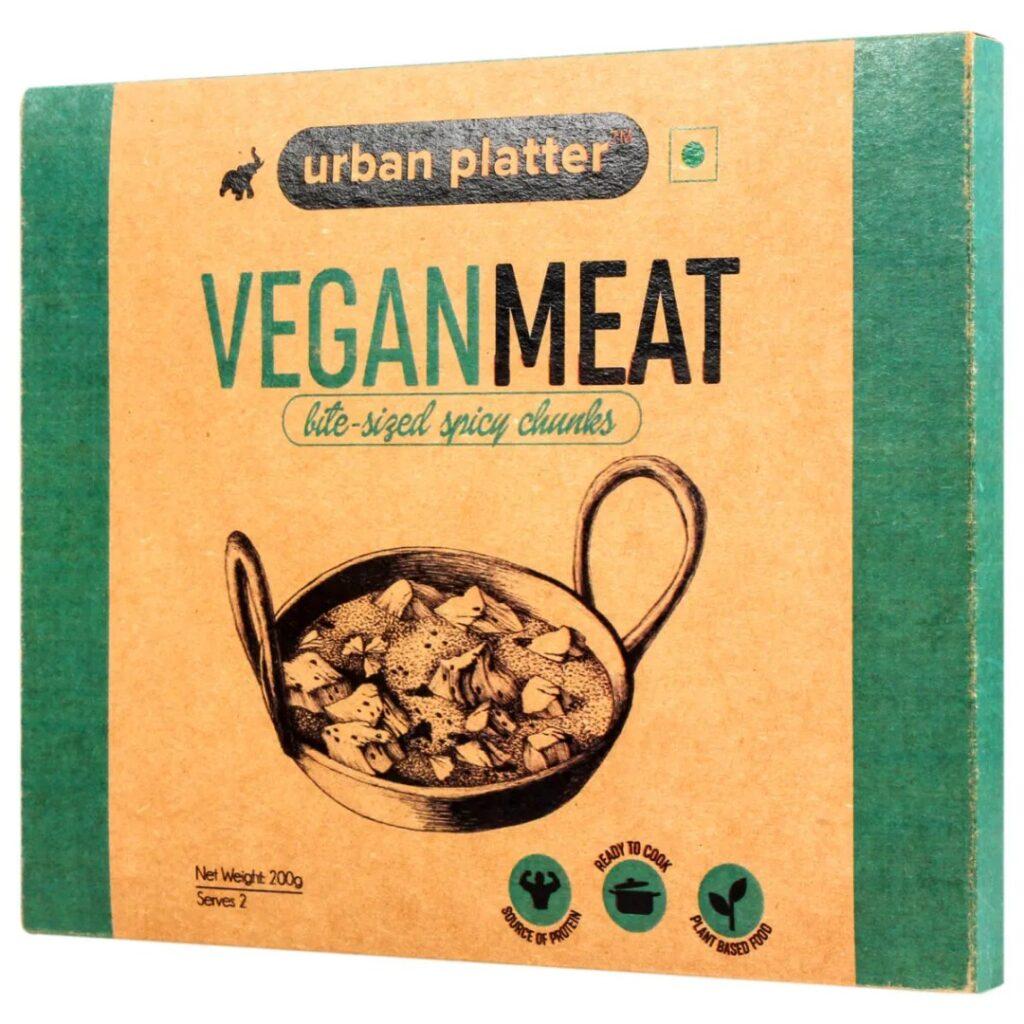
Image Source: Urban Platter
3.Wakao Foods
Wakao Foods, established by criminal lawyer-turned-entrepreneur Sairaj Dhond, is India’s newest entry into the imitation meat business. Their menu contains Raw Jack, which may be used in various dishes ranging from biryani to tikkas, as well as ready-to-eat variants such as teriyaki and barbeque-flavored jackfruit and jackfruit burger patty. Dhond desired to imitate meat even to the most adamant non-vegetarians, so the brand was established. Over a year of testing, he found the best meat substitute using Goan jackfruit.
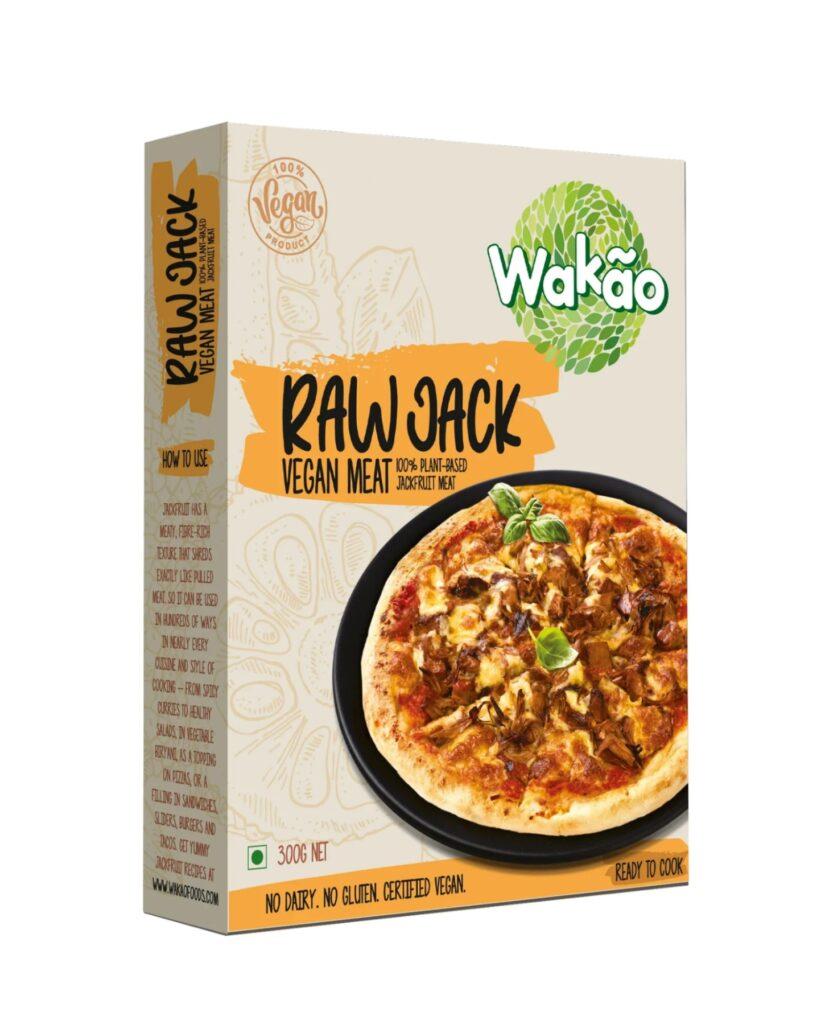
Image Source: Wakao Foods
4.Vegeta Gold
Vegeta Gold is a Chennai-based company that produces high-quality, healthy goods manufactured from shiitake mushrooms, soya, and textured vegetable proteins. Vegeta Gold contains everything you require for your meal replacement, whether fish fillets or prawns.

Image Source: Vegeta Gold
5.Vezlay Foods
Vezlay Foods, a Delhi-based firm started in 2011, is the major provider of soya foods. They serve nutritious and tasty soya-based foods such as seekh kebabs, shammi kebabs, nuggets, drumsticks, and lollypops produced from processed soya beans.
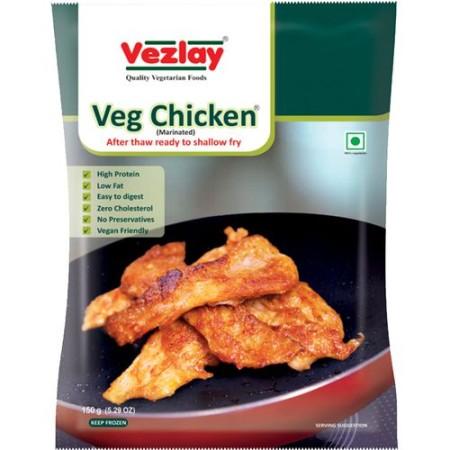
Image Source: Big Basket
6.Unived
Unived is a health and fitness firm that employs vegan foods and supplements to improve nutrition and physical health. They entered the faux meat market as one of only a few companies using jackfruit as a plant-based substitute for animal meat.
The classic old, slightly stinky Kathal has steadily become an excellent stand-in for formerly meat-eaters due to its unique meaty feel that is thought to be the most similar to chicken. Mock meat made from jackfruit is a better option for soya-sensitive folks or have thyroid concerns.
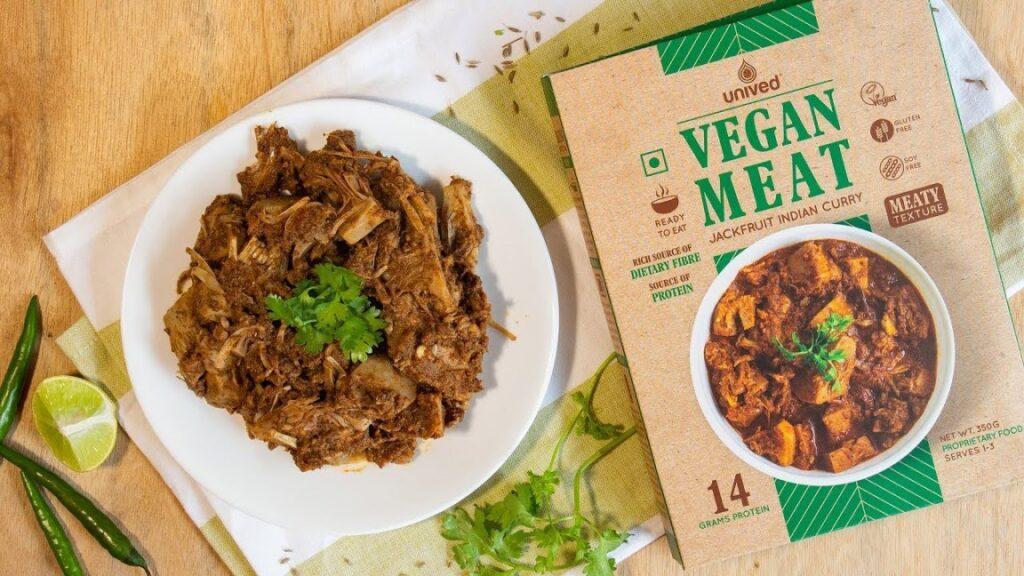
Image Source: Unived
7.Good Dot
Co-founders Abhishek Sinha and Deepak Parihar started in 2016 to transform the world into an improved place for animals, and thus the Udaipur-based firm Good Dot was founded. Their ready-to-eat Vegetarian Bytz sits alongside boneless mutton, while Proteiz mimics the feel of chicken. They also sell ready-to-eat Thai curry, biryani, and aachari tikka that contain faux meat derived from soybean, wheat, and pea protein.
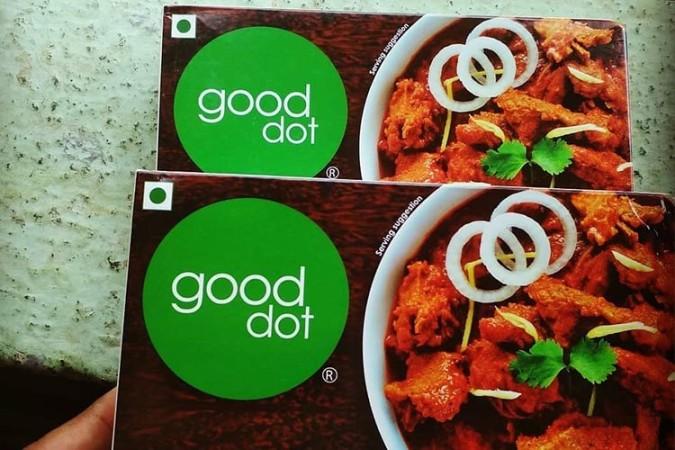
Image Source: Good Dot
8.Vegitein

Image Source: Indiamart
This is a faux meat firm situated in Bengaluru. They produce vegan sausages and pork strips from scratch. You can fry or prepare them. Photos on their Social media page show customers getting more creative with their delicious faux meats.
9.Nutrela chunks
Nutrela is the “go-to” fake meat for many novice vegans. It is extremely affordable and readily available. They also offer cheap soya chunks, mini-chunks, and granules. Soya chunks are quite flexible. The consistency and flavor are perfect, and it’s a breeze to prepare. They can be fried in oil in flour to produce mock-meat filled pakodas or utilized to prepare a luscious soya biryani. The granules are a good replacement for keema.
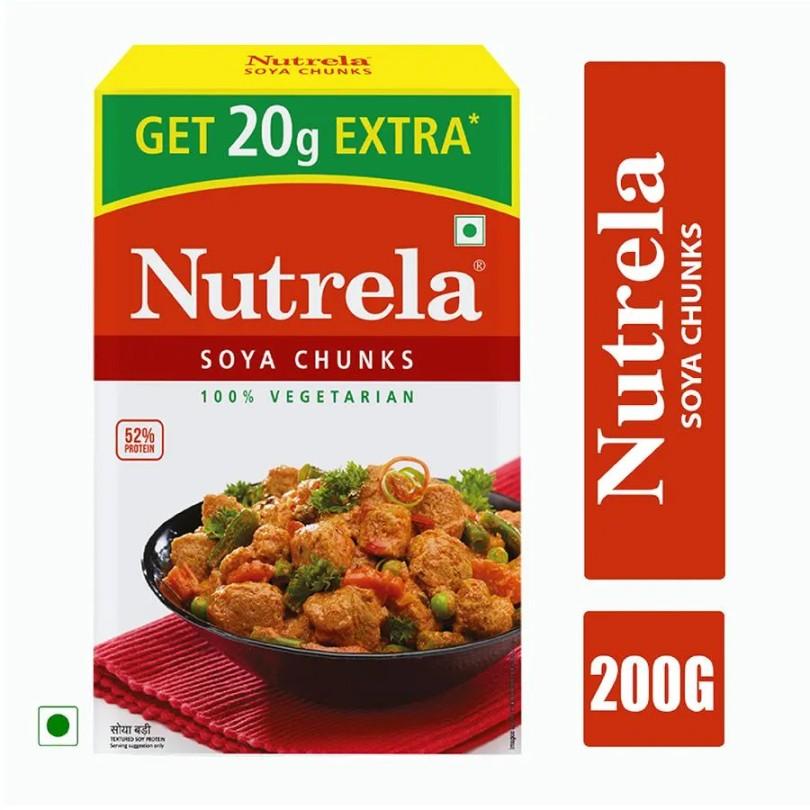
Image Source: Big Basket
10.Mister Veg
This firm delivers not only plant-based meat but also seafood. It was formed in 2018 by Rupinder Singh and Simarjeet Singh to save the environment by offering its customers cruelty-free meat and seafood at cheap rates.
Aside from that, the Faridabad, India-based firm provides prepared foods consumed by the consumer and includes no additives. Customers are drawn in by plant-based seafood and meat products. These goods have a shelf life of more than a year and can be left at room temperature without issue.
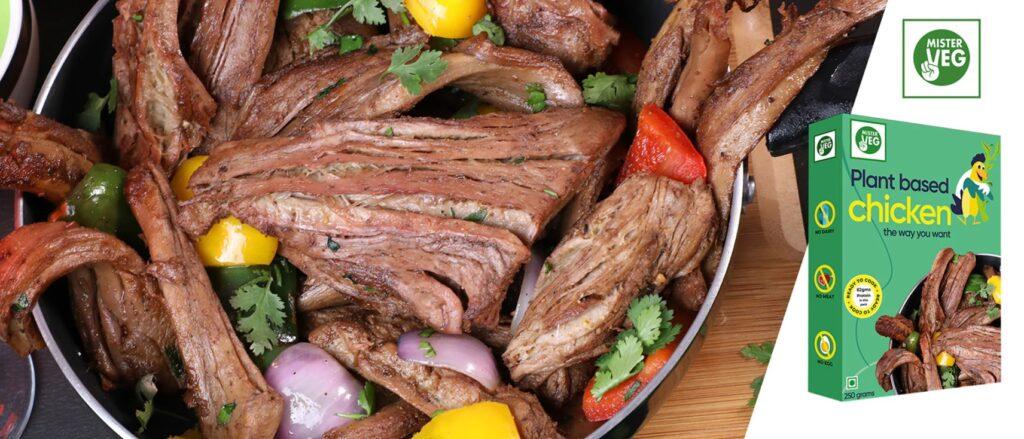
Image Source: Mister Veg
Conclusion
Climate change has emerged as one of the most pressing issues of our day. With a population increase, providing food without rising greenhouse emissions and damaging the ecosystem is impossible. India is the world’s second most populous country; plant-based food products will not only aid in saving the earth but will also assist its people in leading healthier lives by providing good and healthy meals.










